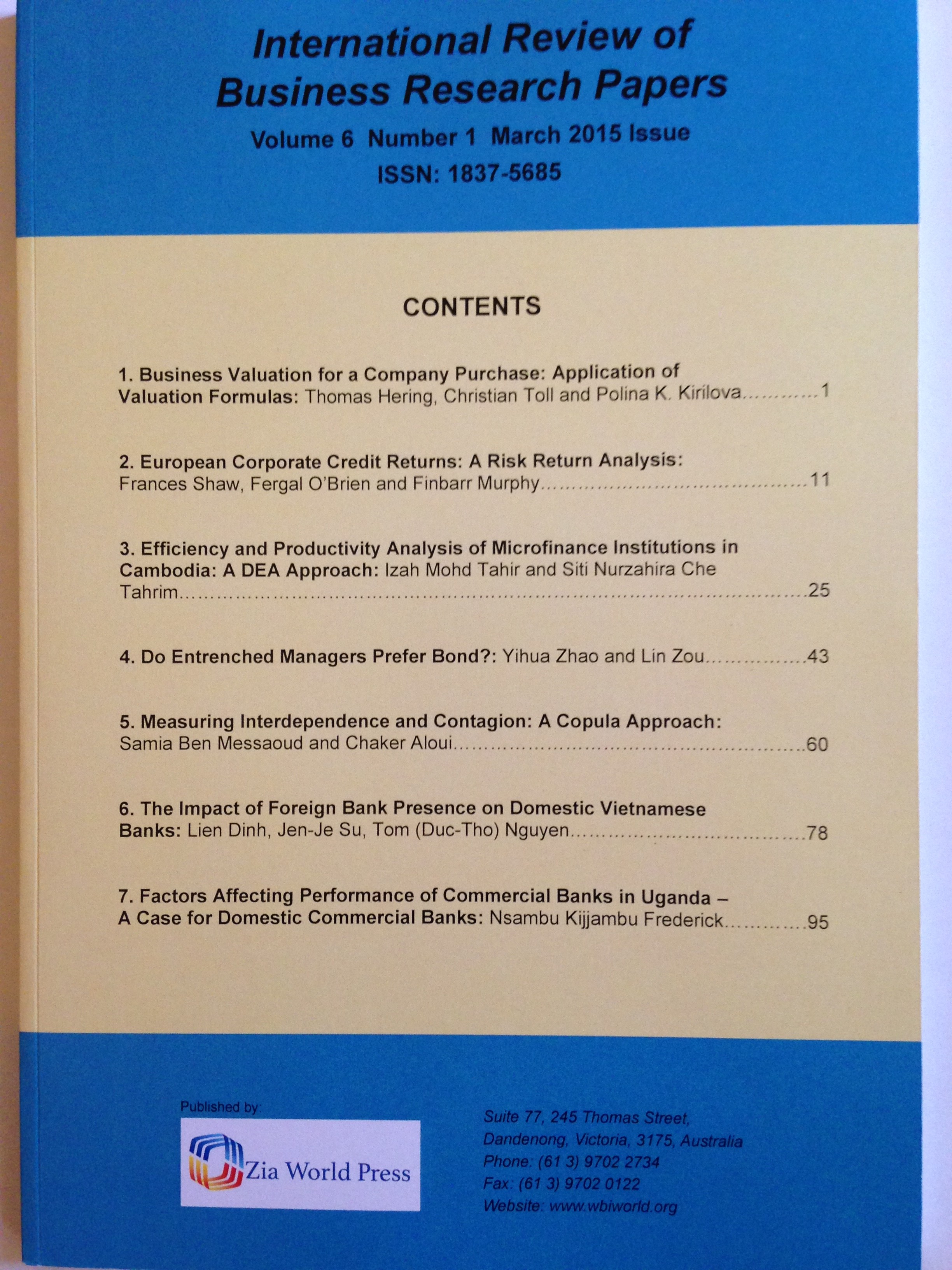Pages
76 – 96
The United States is the largest recipient of foreign direct investment (FDI) in the world and the largest investor abroad. The significance of this study relates to the fact, that it will enhance the knowledge of the factors affecting USFDI and might have policymaking implications. It identifies literature related to the factors determining US FDI outflows and generates database that will be benefiting researchers. The goal of this research is to illustrate the impact of the following variables on outward US FDI in the European Union countries: the financial variables include: the real interest differential and real exchange rate; the economic variables are represented by: GDP per capita and GDP growth rate, the globalization process includes openness and is measured as total trade as a percentage of GDP; structural and location variables focus on education, infrastructure, telecommunication, civil liberty, perception of corruption, business environment; the labor quality variable incorporates labor productivity, unemployment rate, and the labor cost. The other factors integrate; inflation, tax on capital, Research and Development and corporate business tax.In order to test the implications of our models, we collected a panel of aggregate data on the outward US FDI to all 28 member countries of the European Union for which FDI and all other relevant variables are reported over the 2000–2013 period. The results of this research identified major statistically significant determinants influencing positively outward US FDI in the EU countries. These determinants include: real GDP per capita, the openness of the economy, railway mileage, labor quality, unemployment rate and inflation rate. The panel data regression analyses proved as well negative and statistically significant impact of several determinants on outward US FDI in Europe, such as: corporate tax rate, the labor cost, tax on capital, the growth rate of real GDP, research and development and literacy rate.

